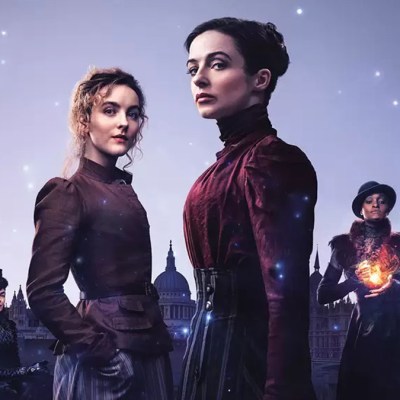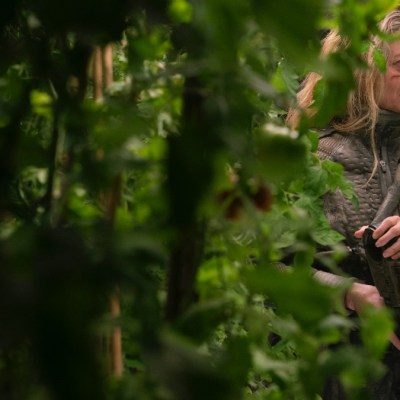TV’s Most Confusing Episodes From Doctor Who to Westworld
Complicated? Good. Baffling? Less good. These are the TV episodes that left us frustratedly scratching our heads like a nit-ridden Stan Laurel.
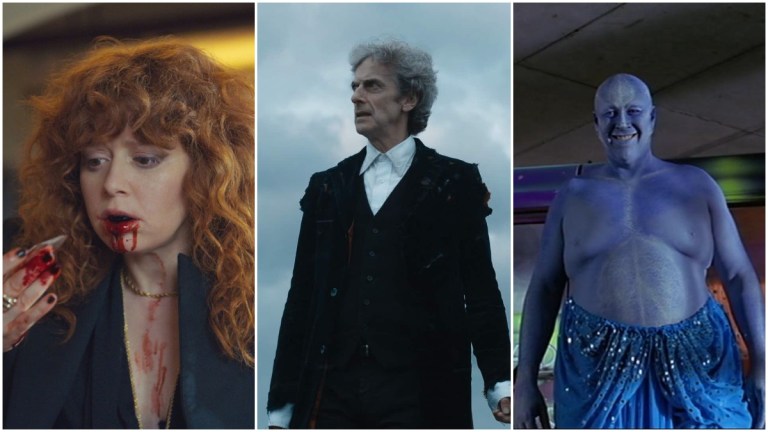
There has to be some confusion in a TV drama, a procession of things not-yet-understood. That’s the deal: accept temporary bafflement in the expectation that at some point, all will be revealed. Or even if it won’t be, at least there’s a reason it’s been left unsolved, like a Sudoku you’ve got jam on.
What doesn’t work is when a TV show that’s supposed to be taking you along with it, leaves you behind. That could be your fault (Did you stay awake? Skip an episode? Were you checking your phone? Was your dog doing that weird thing with the curtains so you had to get up and miss a bit?). Or it could be the fault of a TV show either too ambitious or inaccessible or illogical for comfort. We’ve chosen the episodes that left us scratching our heads; you can judge who’s to blame.
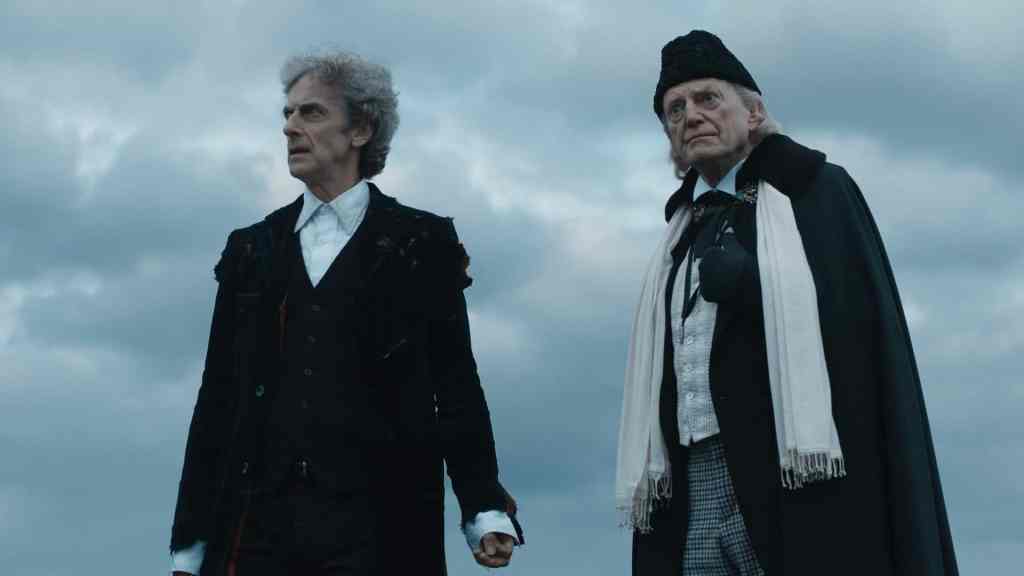
Doctor Who ‘Twice Upon a Time’ (2017)
So named because twice is the minimum number of times you have to watch the 2017 Doctor Who Christmas special before you have the weakest grasp of what’s going on. Considering that most will have only watched it once, and that, from inside a boozy, gravy-based fug, it’s staggering how esoteric this one is – impressively so. As showrunner Steven Moffat’s farewell episode, it’s a distillation of the sort of clever, complicated, ambitious, self-referential writing he’s known for.
There are two Doctors (three if you count the post-Regeneration glimpse of Thirteen), two overlapping Doctor Who stories, a Dalek, an ancestor of The Brigadier, a ship’s pilot made of glass, a moving historical WWI moment and three companions who aren’t really there. (Or are they?) It’s about regret, or reminiscence, or saying goodbye. It’s definitely about something and is doubtless very meaningful and poignant once you crack its shell, but there’s the sense that, unless you’re one of the Who hardcore, it doesn’t really care for you to try. Why be so aloof? It’s Christmas. Let the rest of us play too. LM
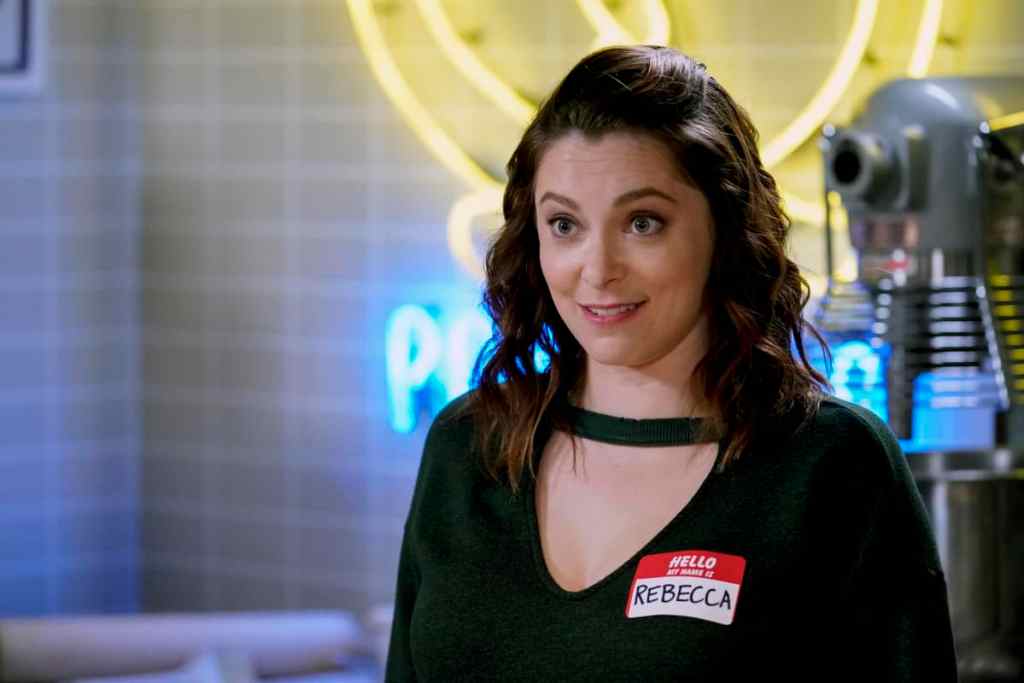
Crazy Ex-Girlfriend Season 4 Episode 8 ‘I’m Not the Person I Used to Be’
This was a bold move from a bold show. When Santino Fontana chose to leave Crazy Ex-Girlfriend after his one year contract ended, the character of Greg – assumed by many to be lead Rebecca’s romantic endgame – was written out in early season two. Then in the fourth and final season, Greg returned but this time played by Skylar Astin. Instead of glossing over the casting change and pretending as though nothing had happened (like when, say, Ross’ ex-wife Carol on Friends or mercenary warrior Daario Naharis on Game of Thrones changed faces), Crazy Ex-Girlfriend hit it straight on.
This smart, innovative series had always been filtered through the unreliable perspective of lead Rebecca Bunch (hence the extravagant musical numbers that take place in her head). So when Greg’s character was recast, the show used it to comment on our impressions of other people. ‘I’m Not the Person I Used to Be’ lampshaded New Greg with a psychoanalytical reflection on changing perceptions and personal growth. It was brave. It was innovative. It was admirable. It was… really confusing and distancing. However great Astin was in the role, and however clever the idea was, New Greg was the point at which some Crazy Ex-Girlfriend fans began to peel away from a show clearly unafraid to leave viewers behind. LM
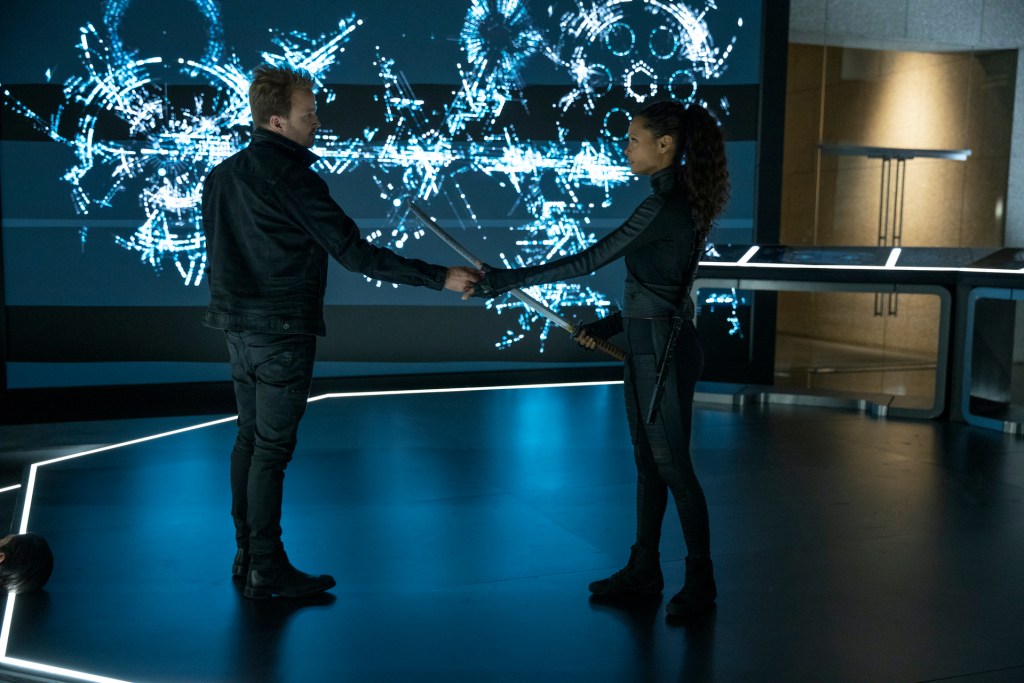
Westworld Season 3 Episode 8 ‘Crisis Theory’
The Westworld season one finale was confusing in a delicious, grinning ‘Oh, you clever devil’ kind of way. The Westworld season two finale was confusing in an exhilarating ‘Blimey. All right then!’ kind of way. The Westworld season three finale was confusing in a way that made you feel like you’d watched the entire Terminator trilogy on fast-forward while downing a 12-pack of Red Bull and trying to rewire the electrics in your house. It wasn’t a good feeling.
I still don’t know which world-dominating AI was which, who was fighting who, what the evil French guy wanted, how many people were secretly Dolores, whether Maeve still only existed in the Matrix, and why Jesse from Breaking Bad was the new Jesus. If free will still exists by the time season four comes, I’m using mine to either get a valium prescription or change channels. LM
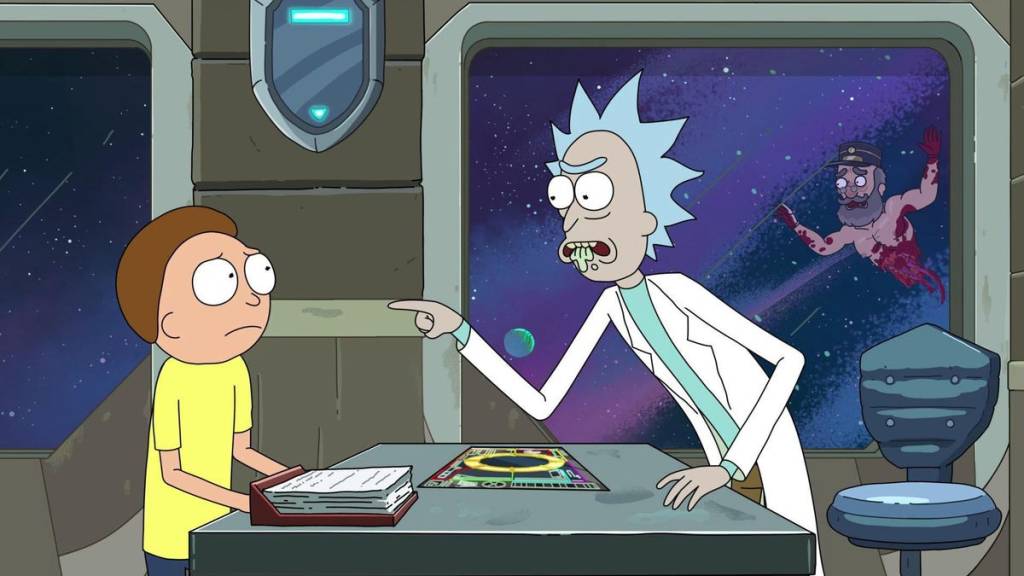
Rick and Morty Season 4 Episode 6 ‘Never Ricking Morty’
“Never Ricking Morty” is a particularly divisive episode of Rick and Morty – even at this very website! Some of us loved it, while others weren’t big fans. One thing that’s undeniable, however, is that this midseason 4 episode is the show’s most complicated narrative endeavor yet. “Never Ricking Morty” takes place on a “Story Train,” meaning that the plot initially goes through your typical three-act storytelling structure.
Once Rick and Morty realize where they are, however, Rick understands that the only way out of the Story Train is to reject the conventions of storytelling altogether. This means that any natural storytelling inclination must be resisted. It also means that the show burns through about nine series finales worth of epic nonsense right at the end as Rick and Morty’s “canon” is sucked right out of them. It’s tremendously challenging to watch, much less understand, and the episode wants it that way. – AB
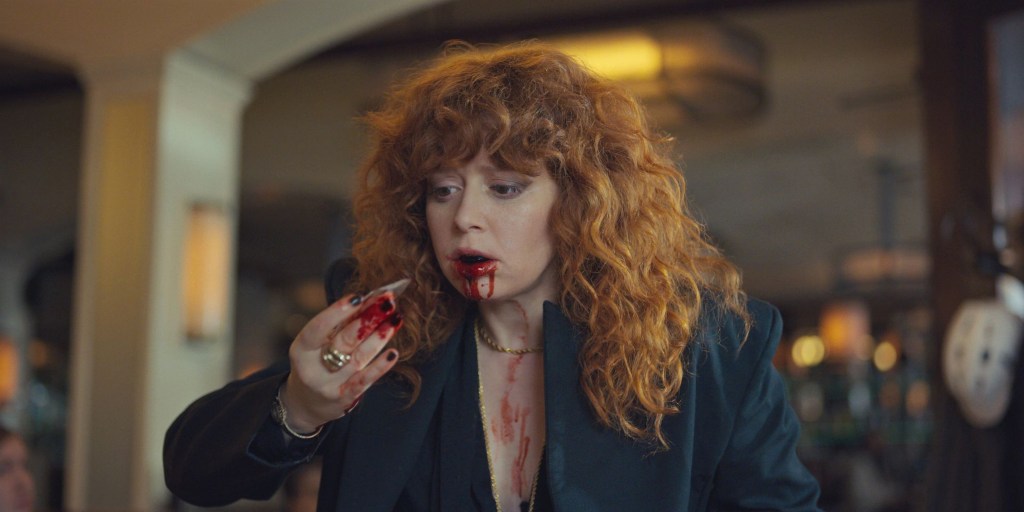
Russian Doll Episode 7 ‘The Way Out’
Like many other Groundhog Day-style “time loop” stories, Netflix’s Russian Doll goes out of its way to establish the “rules” of its sci-fi premise. Every time Nadia Vulvokov (Natasha Lyonne) dies (which happens with disturbing frequency), she returns to the night of her 36th birthday party, washing her face in the bathroom as Harry Nilsson’s “Gotta Get Up” plays. That much is easy to understand, and Russian Doll has fun seeing how far it can make Nadia last before perishing and returning to the night in question.
Once she meets another person stuck in a time loop, however, things start to get wacky. Russian Doll’s seventh episode, “The Way Out,” is about as off-the-wall an experience as you’ll find on television. Nadia’s loved ones start to disappear. Then she flashes back to memories of her mother. Before you know it, teeth are bloodily falling out. Russian Doll settles in for a relatively logical ending in its eighth episode, but this penultimate installment is pleasantly incomprehensible. – AB
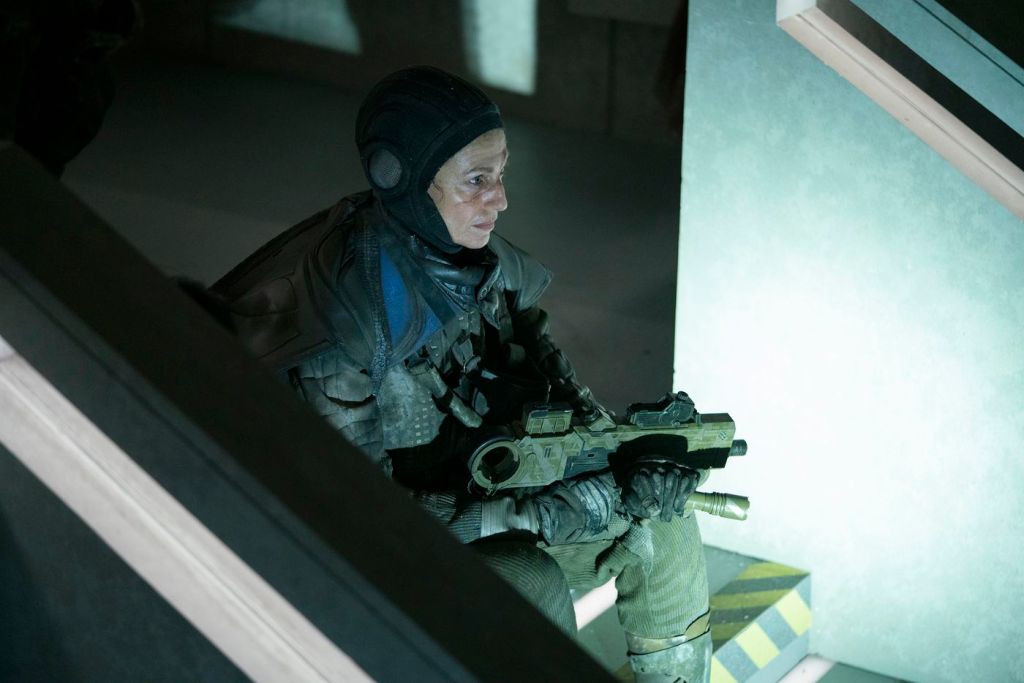
The Nevers Episode 6 ‘True’
The Nevers’ premise is bold enough to begin with. The HBO series is set in a fictional Victorian era where a select portion of the population (most of them women) have been “Touched” or blessed with supernatural abilities. Apparently, however, bold wasn’t nearly bold enough. The Nevers’ sixth episode, which serves as a de facto season finale due to a COVID production delay, upends everything.
This episode begins not in 19th century London like every other installment thus far, but in a far flung dystopian sci-fi future. Earth is barely habitable and humanity is on the ropes. The only possible hope that the human race has left is in the form of a powerful alien species known as the Galanthi. If this all sounds complicated, you don’t even know the half of it. “True” is notable for not holding the audience’s hand through this disorienting experience at all. The episode makes no attempt to tone down its futuristic jargon and it’s not entirely clear what’s even happening until halfway through. By episode’s end, it’s apparent how “True” connects to The Nevers’ original concept, but no one would be blamed for needing multiple rewatches to really get it. – AB
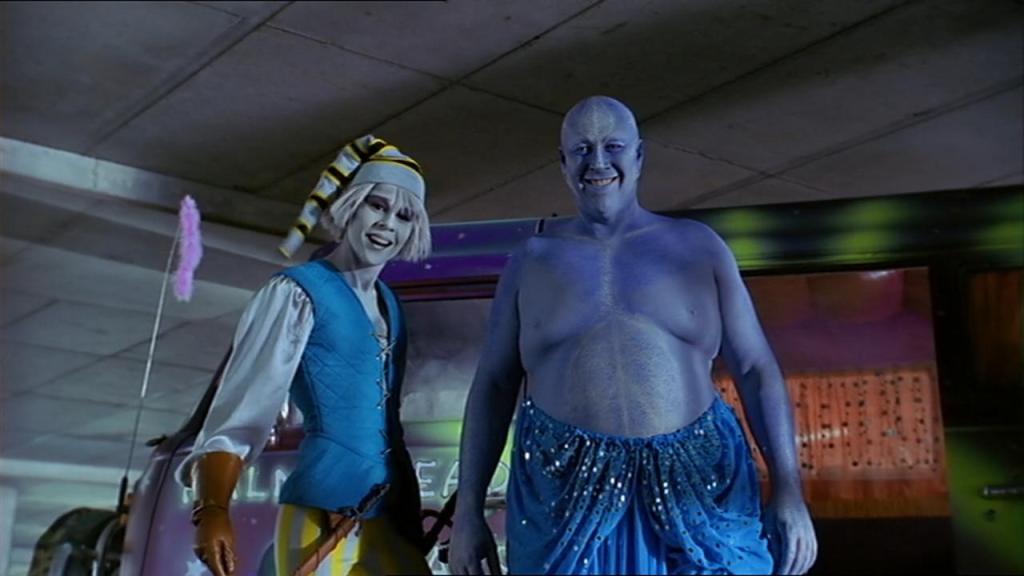
Farscape Season 4 Episode 7 ‘John Quixote’
Let it never be said that Farscape was a TV show afraid to take a big creative swing. In season 4, we get this trippy and confusing episode (written by series star Ben Browder), which sees Crichton and Chiana trapped in a virtual reality game based on the memories of Black-T Crichton (because, yes, this was after the storyline that saw the show’s main character split into two, equally valid humans) and a neural template from Stark. The game is designed to keep C & C trapped in the gameworld until they die so their consciousnesses will be trapped in the virtual reality—wait for it—forever.
This hour of TV actually holds up quite well upon rewatch, probably because it is packed to the brim with clever pop culture references, but an initial watch of this series installment is absolutely bonkers, featuring Aeryn as a southern belle, Rygel as a version of Monty Python’s Black Knight who can shoot fire out of his ass, and D’Argo as a lederhosen-wearing Hansel who, at one point, eats baked beans out of Jool’s intestines. I can only imagine what someone watching this episode out of context would imagine this show is actually about. – KB
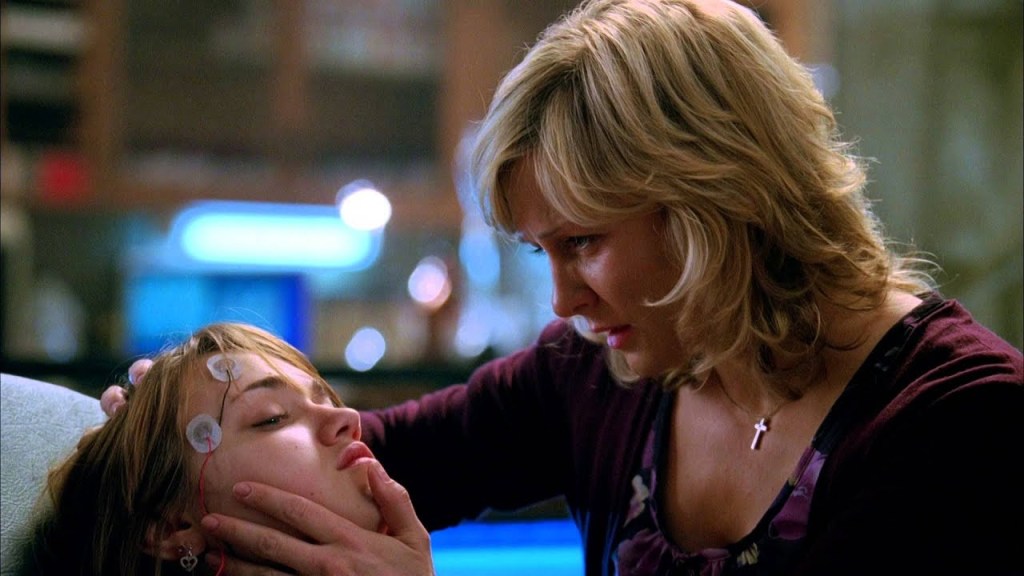
Fringe Season 2 Episode 11 ‘Unearthed’
Some episodes of television intentionally challenge the viewer’s ability to interpret what the hell is going on, and some episodes of television are broadcast wildly out of order, seemingly bringing back a character killed off in the previous season for a humdrum monster-of-the-week installment. You may have guessed that I have a specific example in mind for that second category and, if so, you would be right. Written and filmed to be the 21st episode of Fringe’s first season, “Unearthed” was instead recycled to be a mid-season installment in the second season of Fox’s usually pretty great sci-fi drama.
This might have worked—it’s a basic episode that sees the Fringe team exploring the mystery of a teen girl who is pronounced dead, only to wake up screaming an alphanumeric code while doctors are working to remove her organs—save for the fact that it features a Fringe team member who was killed at the end of the previous season. Honestly, I can laugh about this now, but, at the time, it was jarring and confusing, with the network (Fox, if you were wondering) offering no pre-episode or in-episode explanation offered for why the aforementioned deceased character might be up and walking. For this to happen in an episode that also features a guest character thought dead revealed to be alive is icing on the cake. – KB

The OA Episode 8 ‘Invisible Self’
The OA is one of the most aggressively bizarre shows in Netflix history. Created by and starring Brit Marling, this two-season sci-fi series is fit to bursting with strange, at times difficult-to-comprehend concepts. The storyfollows Marling as Prairie Johnson, a young woman who resurfaces after disappearing – only now she refers to herself as “The OA (or original angel)”. Prairie/The OA recruits several disciples who she promises to take to another dimension. In “Invisible Self”, the final episode of the show’s first season, it all somehow culminates into…well, into this:
Yes, what you’re seeing there is a group full of cult weirdos engaging in an interpretive dance to stop a school shooter. And mostly succeeding! The OA‘s second season gets even stranger in many respects but it’s hard to top the confusing majesty of this first season finale.
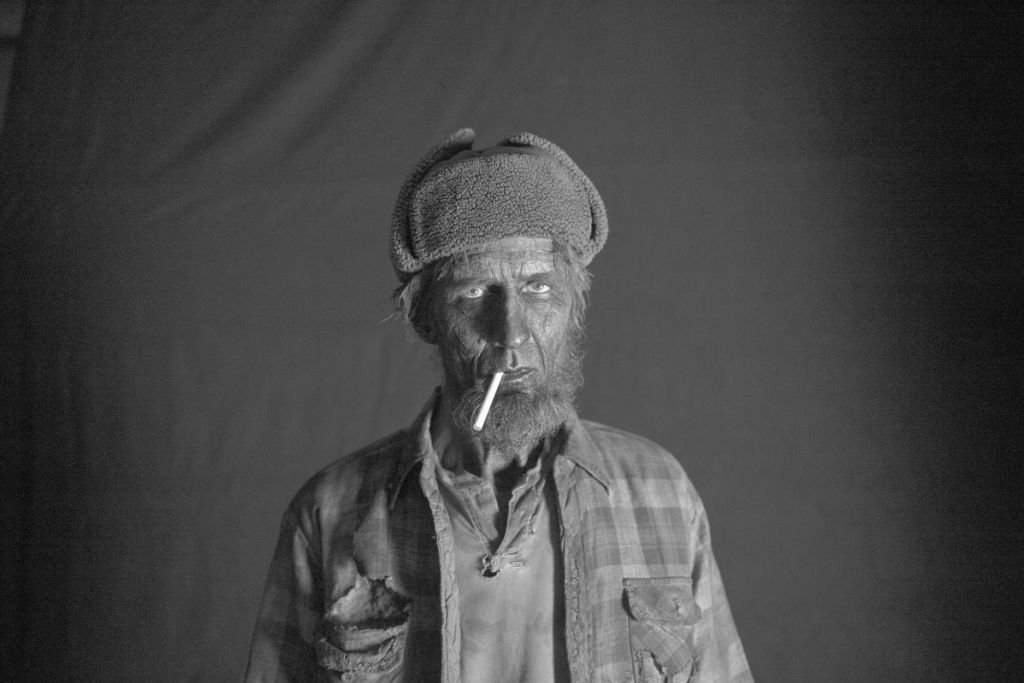
Twin Peaks: The Return ‘Part 8’
Legendary filmmaker David Lynch has absolutely no concerns about being dubbed “confusing.” In fact, when it comes to Lynch’s filmography, that’s kind of a feature, not a bug. In-between crafting mind-bending classic films like The Elephant Man, Blue Velvet, and Mulholland Drive, however, Lynch took some time to stamp his name into TV history with the surprisingly straight-forward Twin Peaks. Sure, Twin Peaks was frequently abstract and strange throughout its two-season run but it had a coherent plot, which is more than many Lynch movies can claim.
That sense of narrative coherence all ends during a particular episode of the 2017 revival Twin Peaks: The Return. “Part 8” is absolutely bonkers. Episode co-writer Mark Frost described it as “what you might describe as a Twin Peaks origin story, [showing] where this pervasive sense of darkness and evil had come from.” In Frost and Lynch’s world, that sense of darkness comes in forms including but not limited to: the detonation of the first atomic bomb in 1945, oodles of primordial ectoplasmic fluid, a frog/cockroach creature, woodsmen manifesting out of mid-air, and of course: a performance by “The” Nine Inch Nails. It’s one of the most confusing episodes of television in history…and one of the best.

Dark – Every. Single. Episode.
When trying to pinpoint one episode to highlight for this article, Dark fought back and I came to the conclusion that every single episode of German multigenerational sci-fi series Dark is borderline impenetrable. Just when you think you have finally wrapped your head around what’s happening in the small town of Winden, Dark will throw in another layer to this timey-wimey, multiversal story that assures that you, in fact, have no idea what the hell is going on.
That being said, unlike some of the shows on this list, the confusing nature of Dark’s narrative isn’t a bug; it’s an intentional feature. This is a show that asks a lot from its viewers, but gives us satisfying answers in return. And it’s OK if you only ever have half an idea of what’s going on—if that’s the case, you’re doing better than most of Dark’s characters. – KB

